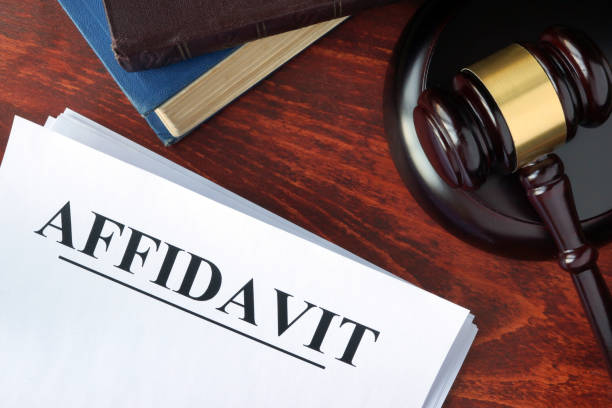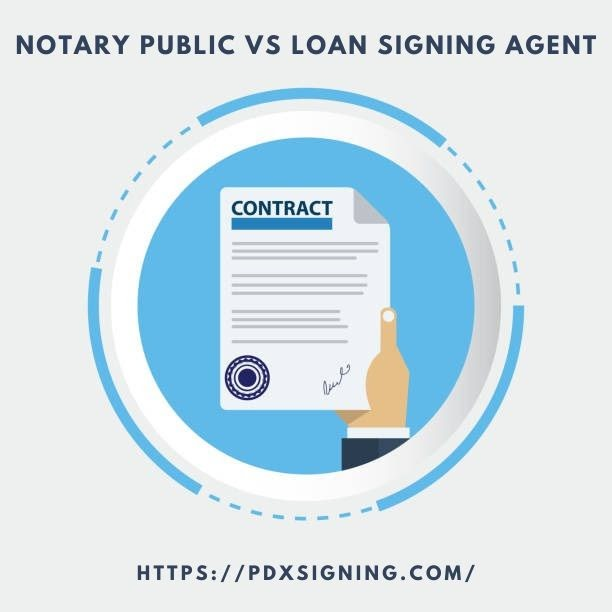

An affidavit will come up in your life at some point. You may have questions about what an affidavit is when that time arrives.
What precisely is an affidavit, then? How is an affidavit notarized? Don't worry; we'll address each of these queries in this blog post by Pdx signing.
Pdx signing provides real estate notarial, I-9 verification, and fingerprinting services. We have a solid reputation as top loan signing agent in Oregon . Now fasten your seatbelts and get ready to unravel all the secrets of the document.
Affidavit: What Is It?
Affidavits can be presented in a variety of ways. An affidavit is a legal document that includes a written statement in which the signer affirms that the information is true. Affidavit signing has significant weight and should not be taken lightly. Perjury is defined as intentionally lying or omitting information from an affidavit.
An affidavit can be thought of as an oath in writing. Whether it was live on television or in person, we have all seen an oath being taken. You may have observed witnesses in courtroom dramas raise their right hand when testifying. The next step is for them to formally swear that they will tell the truth, the whole truth, and nothing but the truth. This ceremonial action, both verbal and physical, highlights the importance of the commitment.
An affidavit must also be notarized in order to be taken seriously and to have legal force. Later in this blog post, we will discuss notaries and notarization in more depth.
Notarized Declaration
An affidavit must be notarized, as was previously mentioned, in order for it to be taken seriously. Very likely at some point in your life, you had to have a document notarized.
A notarization is the process through which a neutral third party witnesses and authenticates the signature of important documents. A Portland notary is someone who makes arrangements for a notarization to occur.
Notary Definition
A notary public or notary is the person who witnesses the notarization signature. The official representative of the secretary of state is a notary public. A notary can be anyone over 18 with a high school diploma and no criminal history.
What do you bring?
Preparing for an appointment includes knowing what to bring. Yet, notarizations only need four things and are quite easy to complete.
What do you bring?
Preparing for an appointment includes knowing what to bring. Yet, notarizations only need four things and are quite easy to complete.
A suitable identification
We now understand how important accurate signer identification is to a successful notarization. To complete this vital step, you must have a suitable form of picture identification on you. The two types of identification that are most frequently accepted are a valid driver's license and a passport.
Documents
Documents Although it may seem obvious, carry the necessary paperwork for notarization. Sometimes we overlook the most straightforward duties!
Before your appointment, fill out any blank fields (name, address, etc.) to save time. But, resist the urge to sign the document! The document should ideally be signed in front of the notary.
Every Signatory
The best way to save time in a notary is to bring everyone who needs to sign a document at once. The majority of documents call for the signatures of many signers. If that's the case, having everyone there will definitely expedite things.
Notarial Fees
Last but not least, keep in mind that you must reimburse your notary for their services. A notary public will frequently bill by the number of signatures. The amount that a notary public may charge is typically restricted by law.
Final Reflections
An affidavit is merely a statement of facts that the author swears to be true and accurate. Affidavits must also be notarized in order to be considered a binding legal document.

Like a notary, LSAs are not permitted to give legal counsel, define words, or interpret the documents they assist with. They are only brought in to help with document handling and processing during the loan’s closing stages. Also, LSAs must go through background checks every year because they have access to borrowers’ personal financial information. This helps protect consumer information and helps stop mortgage fraud. LSAs are instructed in the processing of loan document packages in addition to these recurring background checks. This means printing loan documents correctly, mailing back signed documents, and following any additional instructions provided by the lender or title company.
When it comes to certifying documents and signatures, both notaries public and loan signing agents offer vital services. Although many notaries have the authority to serve as loan signing agents (LSAs), notaries are not necessarily able to perform all of the same responsibilities as an LSA. So when it comes to a loan signing agent vs notary public, what is the distinction?
A notary public is a state-appointed official who verifies the identity of signers and witnesses of legal documents and administers oaths. Notaries are responsible for ensuring that the signers of documents are who they claim to be, are signing the document of their own free will, and are aware of the contents of the document. Notaries are commonly used in real estate transactions, wills, and powers of attorney.
A loan signing agent, on the other hand, is a specialized type of notary public who is trained to handle loan documents. Loan signing agents are responsible for guiding borrowers through the loan signing process and ensuring that all documents are signed correctly and in compliance with state and federal regulations. Loan signing agents are commonly used in mortgage refinancing, home equity loans, and other types of real estate transactions.
In summary, while both notaries public and loan signing agents deal with legal documents, notaries are more general and handle a wider range of documents, while loan signing agents specialize in handling loan documents.


